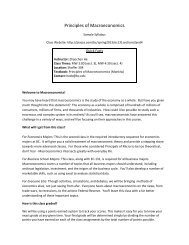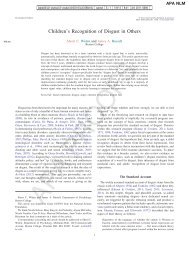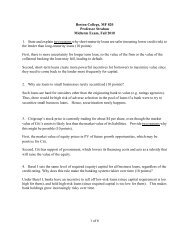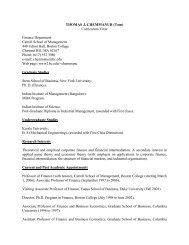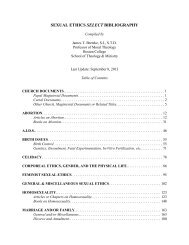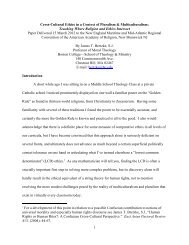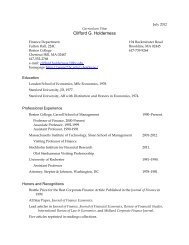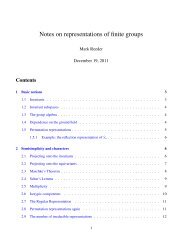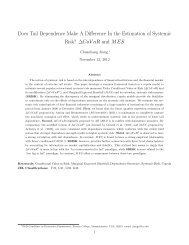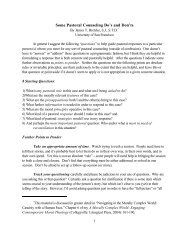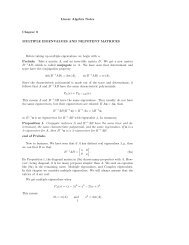A Value-based Pricing Perspective on Value ... - Boston College
A Value-based Pricing Perspective on Value ... - Boston College
A Value-based Pricing Perspective on Value ... - Boston College
You also want an ePaper? Increase the reach of your titles
YUMPU automatically turns print PDFs into web optimized ePapers that Google loves.
delivers greater differential value should be more effective. Duracell introduced an ad campaign<br />
designed to credibly communicate differential value rather than merely counter-attack its<br />
archrival’s simple repetiti<strong>on</strong> that Eveready “keeps going and going.” The ads (<strong>on</strong>e versi<strong>on</strong><br />
shown in Exhibit 5-8) report that Duracell is the battery brand chosen when human life and space<br />
missi<strong>on</strong>s depend <strong>on</strong> l<strong>on</strong>g life and reliability. Even without any direct performance data, the fact<br />
that thoughtful buyers with big benefits at stake (like hospitals) have chosen Duracell reassures<br />
buyers that it is probably a better choice.<br />
[INSERT EXHIBIT 5-8 HERE]<br />
Even in business markets, an endorsement can be nearly as powerful as hard data.<br />
Opini<strong>on</strong> leaders are those whose lower cost of search leads them to make what others see as<br />
more informed decisi<strong>on</strong>s. In medical products markets, Kaiser Permanente, an HMO <strong>on</strong> the<br />
West Coast of the United States, has a reputati<strong>on</strong> for being a well-informed buyer of the most<br />
cost-effective medical products. The company often c<strong>on</strong>ducts its own trials of drugs and devices<br />
and will not buy a more expensive product without ec<strong>on</strong>omic justificati<strong>on</strong>. C<strong>on</strong>sequently, many<br />
other hospitals and HMOs who learn that Kaiser Permanente has adopted a more expensive<br />
product or service will assume that its price premium is cost justified.<br />
Multiple testim<strong>on</strong>ials from satisfied customers, even when they are not opini<strong>on</strong> leaders,<br />
can also reassure those attempting to make a purchase decisi<strong>on</strong> involving objective ec<strong>on</strong>omic<br />
benefits. To counter the threat from lower cost Linux operating systems, Microsoft<br />
commissi<strong>on</strong>ed independent c<strong>on</strong>sultants to develop “Customer Case Studies,” each a video clip<br />
from a chief informati<strong>on</strong> officer or other systems professi<strong>on</strong>al. Each explained why, after<br />
c<strong>on</strong>siderable study, they decided to remain with the Microsoft Windows platform, despite its<br />
higher price. Microsoft reinforced these testim<strong>on</strong>ials with “White Papers” showing how the total<br />
lifetime cost of an open-source operating system could exceed the costs for a comparable<br />
Windows operating system, despite saving the upfr<strong>on</strong>t purchase costs for Windows.<br />
Strategy 3: Psychological End-benefit Framing<br />
When customers are motivated by psychological benefits such as comfort, pleasure,<br />
safety, security, status, compani<strong>on</strong>ship, adventure, or fulfillment, it is not possible to define<br />
ec<strong>on</strong>omic value objectively. Even when a low relative cost of search enables customers to<br />
recognize differences in product or service features, the psychological value they associate with<br />
those features will be subjective. The key to influencing perceived value for such products is to<br />
help buyers make c<strong>on</strong>necti<strong>on</strong>s between the differentiating features they recognize and the<br />
possible psychological benefits they could gain.<br />
One of the most effective ways to do this is by reframing the way the customer views the<br />
product or service differentiati<strong>on</strong>, not in terms of the product’s immediate attribute performance<br />
(a “this razor will give you a closer shave”) but in terms of a possible end-benefit (”the shave this<br />
razor gives you will make you more attractive for an evening out with your date.”) Hart<br />
Shraffner & Marx ran a campaign showing elegantly dressed business executives with the<br />
message: “The right suit might not help you achieve success, but the wr<strong>on</strong>g suit could limit your<br />
chances.”<br />
10



